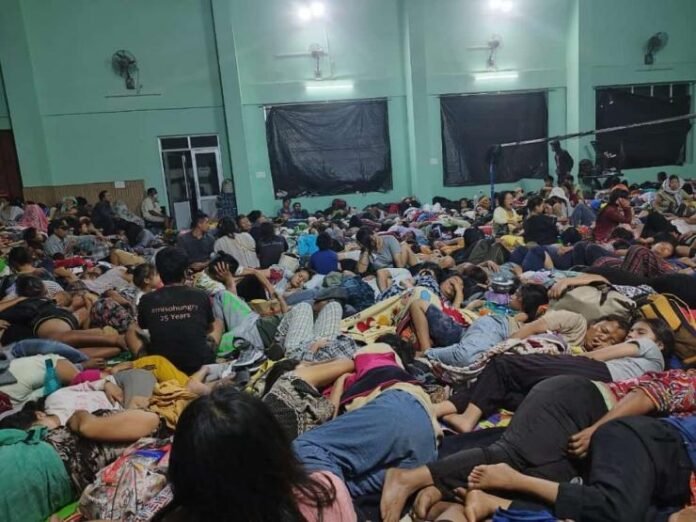In a move aimed at upholding the democratic rights of all citizens, the Election Commission (EC) has taken a significant step by allowing those displaced by the recent violence in Manipur to exercise their franchise from relief camps. This decision comes amidst ongoing efforts to ensure that every eligible voter has the opportunity to participate in the democratic process, even in the face of adversity.
Manipur, a state known for its vibrant culture and diverse communities, has been grappling with a spate of violence in recent times, resulting in the displacement of thousands of individuals. Against this backdrop, the EC’s decision to facilitate voting from relief camps emerges as a beacon of hope for those affected by the turmoil, reaffirming their right to participate in shaping the future of their state and nation.
The move by the EC underscores its commitment to inclusivity and accessibility in the electoral process, recognizing the unique challenges faced by displaced populations during elections. By allowing voting from relief camps, the EC not only ensures that the voices of those affected by violence are heard but also upholds the fundamental principles of democracy and equality.
For many displaced individuals in Manipur, the opportunity to vote from relief camps represents more than just a civic duty; it is a symbol of resilience and empowerment in the face of adversity. By exercising their franchise, they assert their agency as citizens and stakeholders in the democratic process, despite being displaced from their homes and communities.
The logistical challenges inherent in facilitating voting from relief camps are not to be underestimated. However, the EC has demonstrated commendable foresight and adaptability in devising mechanisms to overcome these obstacles and ensure a smooth and seamless voting experience for displaced individuals.
Key to this effort is the deployment of mobile polling booths to relief camps, allowing voters to cast their ballots without having to travel long distances or navigate unfamiliar terrain. Additionally, the EC has taken measures to ensure the security and integrity of the electoral process, thereby instilling confidence among voters and stakeholders alike.
Beyond the logistical aspects, the decision to allow voting from relief camps also carries significant symbolic importance. It sends a powerful message of solidarity and inclusivity, reaffirming the principle that no citizen should be disenfranchised or marginalized, regardless of their circumstances.
Moreover, by facilitating voting from relief camps, the EC sets a precedent for future elections, underscoring the importance of accommodating the needs of vulnerable and marginalized populations. In doing so, it lays the groundwork for a more equitable and inclusive electoral process, one that reflects the diversity and pluralism of Indian society.
The EC’s decision has been met with widespread praise and appreciation from various quarters, including civil society organizations, political leaders, and human rights advocates. It is seen as a testament to the Commission’s commitment to upholding the sanctity of the electoral process and safeguarding the rights of all citizens, especially those facing adversity.
However, challenges remain in ensuring that voting from relief camps is effectively implemented and that all displaced individuals are able to exercise their franchise without hindrance. It is imperative that the EC continues to work closely with local authorities, civil society organizations, and other stakeholders to address any logistical or operational challenges that may arise.
As Manipur prepares for the upcoming elections, the decision to allow voting from relief camps serves as a poignant reminder of the resilience and determination of its people in the face of adversity. It is a testament to the enduring spirit of democracy, which transcends barriers of geography, circumstance, and hardship, and empowers all citizens to participate in shaping their collective future.



